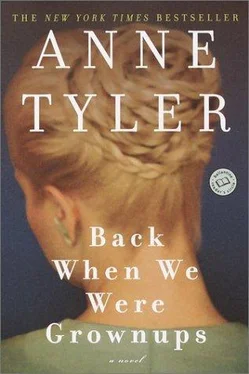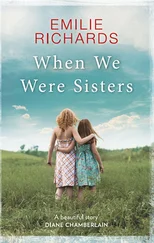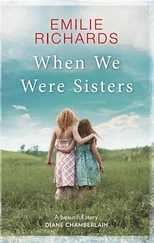She returned the book to the librarian, and she brushed the crumbs of leather off her hands and left the building.
* * *
Everything struck her as unutterably sad — even the squirrel with half a tail she saw bustling cheerfully down the sidewalk. Even Poppy’s daily routine: his ritual round of activities, straightening his room and brushing his hat and tuning in his TV shows, all intended to keep himself from sinking into hopelessness.
She knew her mood had something to do with the season. Autumn was when Joe had died. She couldn’t look at the poplar outside her bedroom window — the leaves so yellow that she would think she had left a light on, some cloudy days in mid- or late October — without recalling that shattered morning when she had emerged from the hospital in a stupor and taken forever finding her car and then driven bleakly, numbly down streets lined with radiant trees in every shade of red and gold and orange.
As a girl she had often said, about some potential disaster, “Oh, that can’t happen; it’s too bad to happen.” But Joe’s death had been too bad to happen, and it had happened even so. She had felt stunned by that all through his funeral — through the thready whine of the organ and the uncertain, off-key hymns and the peculiar poem Zeb had read called “Not Waving but Drowning.” She had sat through that funeral white-faced with shock. It appeared that nothing was too bad to happen. How had she ever thought otherwise?
Grieving had turned out to be not unlike falling in love. She had pored over Joe’s photographs, searched for the innermost meanings of his calendar notations, traced his dear signature on canceled checks. She had found any excuse to mention his name: “Joe always felt…” and, “Joe used to say…” It had troubled her that she could summon up no specific, start-to-finish memory of their lovemaking; only generalities. (He was a morning man. He liked to kiss her eyelids. He had a way of almost purring when she touched him.) She prayed for random moments to resurface. Once, driving along in her car, she was thrilled to recollect that he used to talk to the mirror while he was shaving. (“Ah, there you are, Joe. Ready for another glorious day of helping strangers get drunk together.”) She received this image like a gift, and clung to it, and waited greedily for more.
Her life, as she saw it back then, had begun on an April evening when she had stood on the sidewalk peering at the sign overhead: The Open Arms, Est. 1951. And now her life was finished, but here she was, still circulating among the guests, a solitary splinter of a woman in the crowd.
“Well, you know what they say,” Zeb had told her. (Zeb at twenty-two, full of callow assurance.) “God never gives you more than you can handle.”
“Who says that? Who?” she had asked in a fury. “Who would dare to say that?”
“ I don’t know,” he had said, taken aback. “God, maybe?”
Causing her to start laughing, even while the tears were streaming down her face.
Joe’s November dental appointment, noted in his own jaunty hand with his stubby-nibbed fountain pen, came and went without him. His battery-run watch went on ticking in his drawer.
The worst days had been the ones where she had time enough to think. She thought, What am I going to do with all the years ahead of me? The easier days were the chaotic ones, where she proceeded from minute to minute just dealing with demands. Soothing the children, cooking their meals, helping with their homework. Standing stolid and expressionless when NoNo pushed her away and ran sobbing to her room, or when Patch asked, “Why couldn’t you have died, and Daddy gone on living?”
Some people, she often noticed, had experiences in their pasts that defined them forever after, that they felt compelled to divulge to any casual acquaintance at the outset. The loss of a child, for example: almost anyone who had been through that had to mention it first thing; and no wonder. With Rebecca, it was the fact of her instant motherhood. That had been the most profound change in her life; it had made her understand that this was her life, for real, and not some story floating past. Which may have been the true reason that she still used the term stepdaughter long after the girls themselves, come to think of it, might have allowed her to drop it. And when she had become their one and only parent (for no one seemed to count Tina), she was all the more aware of the unpredictable, unimaginable shape her life had taken.
Once, introducing “my stepdaughters,” she had happened to include Min Foo with a thoughtless wave of her hand. Min Foo had never let her forget it. “I’m sorry! It was an accident!” Rebecca told her, but privately, she had suspected that it revealed something significant. Min Foo was just as much her own separate self, just as different from Rebecca, as the other three were. And in some ways, she was less of a comfort, because she was the youngest and her memories of Joe were fewer. As the years went by, the older girls would reminisce with Rebecca—“Do you remember the time we all got on the train to D.C. and just as we were pulling out, we saw Dad standing there on the platform with the pretzels he’d gone to buy?” Rebecca would nod and laugh, and Min Foo would look from one face to another like someone seeking admission. “Did he ever sing to me?” she asked once. “I think he did. I seem to remember him singing to me while I was lying in bed.”
“I don’t believe so,” Rebecca said, “but I know he read to you.”
“What did he read?”
“Oh, just the usual. Winnie-the-Pooh …”
But you couldn’t reconstruct a person from bald facts. Min Foo would never experience the details of him — the fine-grained skin on the backs of his hands and the curly corners of his eyes when he smiled. (One time a man invited Rebecca out, a year or two after Joe’s death, and she accepted but then was filled with despair at the sight of the wiry red hairs on his forearms. He wasn’t Joe, was the problem. He was a perfectly nice man, but he wasn’t Joe.) And to the grandchildren, Joe was no more distinct than those names you see on nineteenth-century headstones. Joseph Aaron Davitch. He used to exist, was all. And now did not.
Oh, he would have made a fine old man. A fine old man. Sixty-six this past September; imagine. Rebecca was older now than he had even been, although she continued, to this day, to think of him as her senior. And he would have loved having grandchildren.
She used to assume that the bereaved were actually mourning for themselves, and of course that was partly true. But what she hadn’t expected was the sorrow she felt on behalf of Joe. She ached to think of all that he was missing — the various landmarks in the girls’ lives and the daily pleasures and the minor family triumphs.
At first she had thought, I wish I could tell him such-and-such, and, He would have enjoyed so-and-so. Then the years began to telescope, so that if he came back today and asked, “What’s happened since I’ve been gone?” she would say, “Oh, well, I don’t know. This and that, I guess.” Like someone long dead herself, she would see that none of her little world’s events had really been that important.
“How come the front parlor’s cream now?” he would ask. “Where did you put my tennis racquet? What became of that big old oak that used to stand on the corner?” And she would say, “Oh! You’re right: the parlor used to be gray. Your racquet? You played tennis? I’d forgotten there was an oak. I think it was struck by lightning.” She would feel unaccountably guilty; you would think it was Joe she’d forgotten. Although it wasn’t, of course.
Читать дальше












